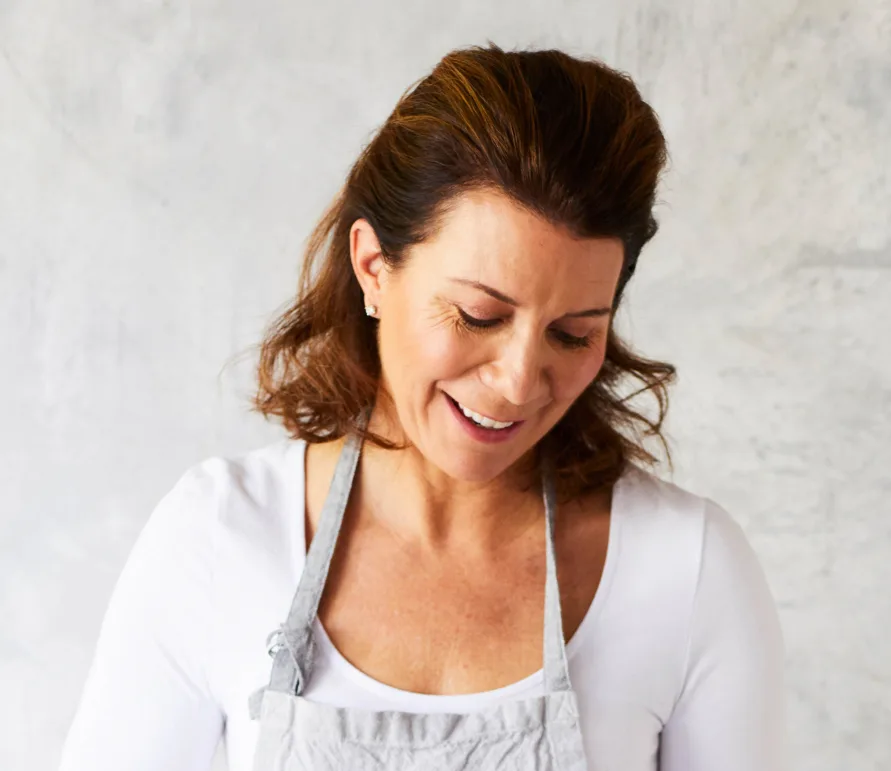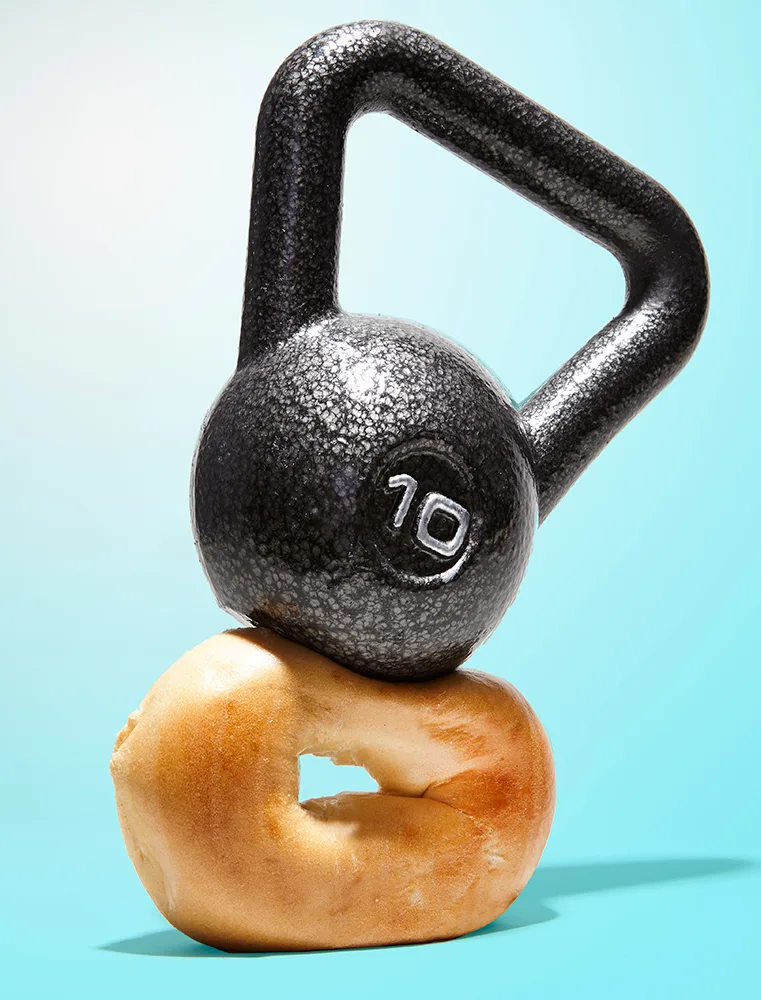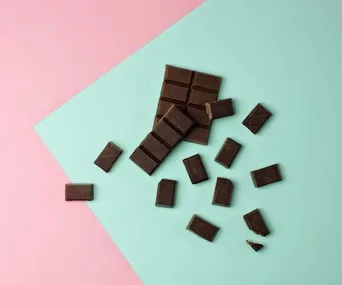Flicking through the first few pages of Michele Chevalley Hedge’s new book, there is a chapter about how no matter what we do or how healthy we are, sometimes life just has other plans for us.
Her younger brother Greg was a firefighter, and found himself at the scene of the World Trade Center tragedy on September 11, 2001.
Three years later, despite his healthy lifestyle, he was diagnosed with lung cancer and given only months to live.
Given Michele is both a qualified nutritionist and an ambassador for Cure Cancer; one might naturally expect that the story to follow would be of how his cancer was cured with the power of nutritional medicine.
But that isn’t what happened at all.
“After the diagnosis, I would tell Greg we were going to have a green smoothie, but he would say, ‘No Michele, we’re not. I’m going to have a beer and you’re going to have a martini, and this is how we are going to play this out,'” she says.
“It was a really big turning point in my life and how I thought about health.
“Previously, I’d say to people that if you practise yoga, do meditation, drink green smoothies and stay hydrated, the stats will tell you that you’ll have better wellbeing and a longer life. But that isn’t the full truth, because my brother Greg was as healthy as a horse, he just happened to be exposed to toxins.
“It doesn’t matter if you’re living the healthiest of lives, sometimes things just happen beyond your control.”

Michele believes a healthy lifestyle doesn’t need to feel like punishment or deprivation.
Her new book, Eat, Drink & Still Shrink, honours her belief that while a healthy lifestyle is essential for feeling at your best, life is meant to be enjoyed.
A life of ‘no’ is no life at all, and a healthy lifestyle doesn’t need to feel like punishment or deprivation.
Prior to becoming a nutritionist, Michele was working in the corporate world.
She recalls feeling burnt out on a daily basis, living off triple-shot lattes, muesli bars and salads fit for a bird, and then getting home, exhausted, to demolish a bag of lollies late at night.
“My weight was fluctuating and it wasn’t just my weight – it was my moods, my self-esteem, my productivity, and my hormones. It was everything!
“That has become the story of the general, busy woman. We put ourselves into starvation mode, our blood sugar is bouncing around all day, and we are going into adrenal fatigue, iron deficiencies and cortisol overload.
“Food is the secret power to good skin, energy, brain function, libido – everything really – but there is so much fear around food and weight gain.”
At every meal, Michele recommends looking at your plate and ticking three simple boxes: healthy fat, lean protein, and smart carbs – a formula that is flexible enough even for people who have food intolerances.
She sees great results in her clinic using small amounts of intermittent fasting, but the bottom line is she would never recommend anything she wouldn’t do herself.
So that means no calorie counting and no detoxes – and carbs are on the menu, as is the occasional drink.
“Your body needs something that is sustainable. I’m not a big fan of fads, diets, restrictions or eliminating food groups, because although they have quick results, they usually come with a rebound effect or aren’t feasible. I’m after long-term, lifetime habits for people to always feel vibrant, productive, creative and connected.
“Good health doesn’t need to be a hassle. Crowd in so much good food that there’s no room for junk, but give yourself the pinot and be happy.”

As a nutritionist, one of Michele’s greatest joys is seeing her clients try eating well for a week or two, then noticing the immediate changes.
Weight loss aside, the afternoon bloat often vanishes, they aren’t feeling wiped out or chewing their fingers off by five o’clock, and they go from passing ‘pebble poos’ to regular, easy bowel movements.
“It’s not just about the number on the scales. In fact, I think very little of the number on the scales. A lot of women are spending 95 per cent of their time obsessing about an extra five per cent of weight on their body. Those couple of kilos from eating joyfully aren’t going to be what’s impacting your health.
“The real problem is your mindset and when obsessing about it starts shifting your mood, your sleep, your concentration, your memory and your self-esteem.”
Women tend to berate themselves over moments of indulgence.
But self-sabotage not only hurts your mental health, it takes a toll on your body too.
Stress alone has a big impact on the body, and a common pattern she sees is for people to beat themselves up, then skip meals or restrict food in an attempt to make up for some false perception of failure or a fear of weight gain.
This however, messes with blood sugar and can throw your whole body out of kilter.

Banishing guilt is one of Michele’s five non-negotiables – micro habits that have a massive impact.
Supporting a nourishing, guilt-free diet with sleep, exercise, stress reduction and gratitude is her winning formula.
“Energy is something I prefer to use as a measure of health,” says Michele.
“Are you coming home each day with enough energy in your tank to be able to connect to your family? That is a true sign of wellbeing.”
By improving what you eat, you’re also likely to see a natural improvement in your sleep, stress levels and energy.
Given her passion for using food as medicine, a portion of the profits from all of her books goes to the Food and Mood Centre at Deakin University.
In their previous three-year SMILES trial study, participants with symptoms of depression were either given a healthy lifestyle plan and social support, or just social support alone.
After three months, the results showed that the dietary intervention correlated with a greater reduction in their depressive symptoms compared to those who only received social support.
Michele adds that deficiencies in iron or B12 are a great example of the connection between food and mood.
Low levels of these nutrients can symptomatically show up as feelings of low mood or depression. For this reason, she stresses the importance of blood tests each year for those who are vegetarian or vegan, as it can be harder to get adequate levels of iron and B12 without animal products.
“Of course, there’s a time and place for medications for anxiety and depression, but what we don’t want people to do is mistake low B12 or iron for a mental health issue. There’s so much powerful evidence that supports the connection between gut health and mental health. There are always many factors involved, but good nutrition can really help underpin good mental health,” Michele says.
“If we can harness the power of food, but also make it joyful and not so restrictive, it is without a shadow of a doubt our secret weapon.”

While coffee and alcohol aren’t health foods, for a lot of people they are two of life’s best little pleasures.
Here are a couple of Michele’s tips for making the healthiest choices:
Avoid adding sugar to your coffee
Limit your coffee intake to two a day, and drink coffee before midday
Instead of decaf, switch to herbal tea
At max, have two alcoholic drinks per night
Avoid cocktails or pre-mixed drinks, they are packed with sugar.
Switch to low-sugar options such as wine, Champagne, or spirits with soda and a slice of citrus.
 Getty images
Getty images



